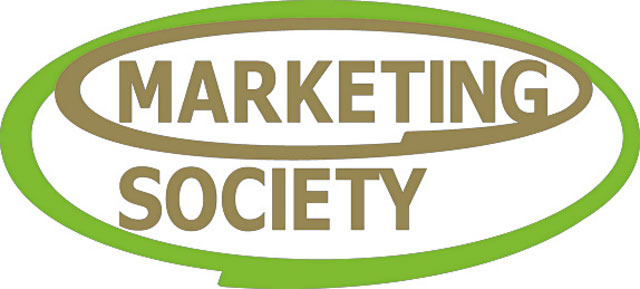 YES - STEPHEN ROBERTSON DIRECTOR-GENERAL, BRITISH RETAIL CONSORTIUM
YES - STEPHEN ROBERTSON DIRECTOR-GENERAL, BRITISH RETAIL CONSORTIUM
The level of debate created by the latest Benetton campaign must be seen as some indication of success. There is a fine line between love and hate, and that includes customer responses to advertising, but it marks a brave return toward the company's earlier, similarly confrontational, advertising.
This is a bold restatement of the Benetton brand. It doesn't tell me much about the clothing but it demonstrates the brand's rediscovered fearlessness and determination to stand out from the crowd.
Being banned by parts of the media should ensure it achieves cut-through and, critically, the brand recognition that most advertising is aiming for, but a woefully small percentage actually achieves. Judging how much of that awareness will be converted into sales is far trickier.
I have always regarded the adage of selling the 'sizzle not the sausage' as bad advice. Customers these days will quickly see through the sizzle if there is no substance to back it up, so I hope the Benetton retail offer is similarly bold.

MAYBE - IAN MCLERNON, COMMERCIAL DIRECTOR, PARFUMS CHRISTIAN DIOR, UK AND IRELAND
Benetton has a history of provoking debate and, in many cases, shocking people through its advertising. This, combined with good-quality products, innovative design and controlled distribution, helped the brand to be one of the successes of the fashion category in the 90s.
Ask most consumers aged 30-plus what imagery they associate Benetton with and I am confident that its ground-breaking ad campaigns of the 90s will be to be front of mind.
Since the millennium, the campaigns have still been capable of provoking debate, albeit that the brand in the UK has struggled to find relevance with consumers among hyper competition from Gap and other high-street and lifestyle brands.
I believe the 'Unhate' campaign will provoke debate within the marketing community. The million-dollar question, however, is how the consumer perceives Benetton. As a fashion and/or lifestyle brand? Also, what is its positioning in this competitive category and, ultimately, is this still relevant for consumers?
 NO - ANDREW WARNER, SENIOR MARKETING DIRECTOR, EMEA, EXPEDIA
NO - ANDREW WARNER, SENIOR MARKETING DIRECTOR, EMEA, EXPEDIA
The problem here is that Benetton running 'shock' advertising is no longer shocking. It is a brand that has lost some resonance in the UK, yet this campaign seems neither to be driving greater consumer empathy nor a reappraisal of the brand.
Some of the world and religious leaders featured in the campaign have expressed annoyance or outrage at it, but British consumers seem to have reacted ambivalently.
On the Daily Mail website, which I suspected would be a good barometer of British disgust, only four comments were posted about this story: two referred to pictures of old men kissing putting them off their dinner, one was mildly annoyed with the image of the Pope kissing an imam, and the other contributor quite liked the campaign.
The sad thing is that the underlying message of the 'Unhate' campaign is tolerance.
At a time when the world order is in upheaval and most fashion ads are formulaic and vacuous, this is a missed opportunity to re-articulate the 'United Colors of Benetton' brand ethos in a contemporary, engaging way.
 MAYBE - KARL GREGORY, UK MANAGING DIRECTOR, MATCH.COM
MAYBE - KARL GREGORY, UK MANAGING DIRECTOR, MATCH.COM
The controversial nature of this campaign has taken the Benetton brand into uncharted territory when it comes to advertising. It is a brave but intelligent move, raising the bar when it comes to a campaign that will have an impact on the international community.
However, if an ad campaign was ever designed to split opinion, this is it. It seems there are just as many people outraged as claiming this to be a stroke of genius. The clothing company was recently forced to pull one of the images from this campaign, which only further underlines this dichotomy.
What can't be denied is that it has achieved massive media coverage and brand awareness, while the online and viral potential remains vast. The campaign has been an unqualified success in that respect.
The acid test will be if it translates into increased sales and whether the Benetton brand is enhanced or, at least, undamaged long-term. NO- PROFESSOR PAUL FORSTER, CHAIRMAN, THE PROSTATE CANCER CHARITY
NO- PROFESSOR PAUL FORSTER, CHAIRMAN, THE PROSTATE CANCER CHARITY
Benetton has slipped out of its high brand profile in the last few years and you can imagine the discussions that led to this campaign – "we need to get back to what made us famous".. "it’s a jungle out there and we have to stand out from the pack".But today is not just about being in the 21st century. Today is an environment that is unprecedented since the end of the 2nd World War. Unprecedented levels of unemployment, of declining real incomes and of extraordinary uncertainties.
While admitting that this campaign will be noticed, can it in any way address today’s challenges? I think not. Benetton finds itself today in a rather uncertain middle ground. The financially stressed can shop at Primark or at many of the emerging budget retailers. And at the higher fashion end of the market, brands are delivering far greater added value. "Unhate" is a fine notion that fails to inspire or empathise with the constrained discretionary purchases of its potential customers today.
is the most influential network of senior marketers dedicated to inspiring bolder marketing leadership.


